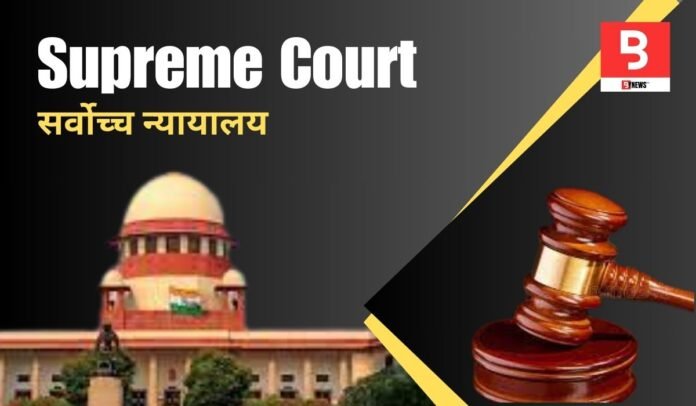Supreme Court’s Landmark Decision: Now quota within SC/ST reservation will be valid, this decision has been given by the Supreme Court (Supreme Court Reservation in Sub Categories). A bench of 7 judges led by CJI Justice Chandrachud while giving its decision on Thursday made it clear that quota within quota can be given to provide reservation in jobs within the states. Today’s decision of the Supreme Court is very important after the 2004 decision.
Table of Contents
What did the court say?
The Supreme Court has said that the basis of sub-classification should be based on correct data of the state.
In this matter the states cannot act as per their own will.
Justice BR Gavai said that the ground reality cannot be denied,
There are categories within SC/ST that have been facing oppression for centuries.
Members of SC/ST are often not able to climb the ladder due to systemic discrimination.
Article 14 allows sub-classification of castes.
The court must examine whether the class is homogenous and can be further classified into classes not integrated for any purpose.
Quoting BR Ambedkar’s speech
The court said, however, despite reservation, people from the lower strata have difficulty in leaving their profession. Justice BR Gavai, citing BR Ambedkar’s speech on the need for social democracy, said that it is the duty of the state to give priority to backward communities, only a few people from the SC / ST category are taking advantage of reservation. He said that the ground reality cannot be denied that there are categories within SC / ST who have been facing oppression for centuries. The basis of sub-classification is that one group out of a larger group faces more discrimination.
What did the Supreme Court say in its 2004 decision?
In its 2004 decision, the Supreme Court had said that the states have no right to make sub-categories of SC/ST for providing reservation. Now the issue before the court was once again of quota within quota. Now the court has made it clear that quota within quota can be given.
What is reservation within reservation?
Sub-classification for reservation of scheduled castes and scheduled tribes is called “quota within quota”. That is, if reservation is being given to people of a community or category, then the same category should be sub-classified and the reserved seats should be distributed among them. For example, if the reservation for scheduled caste category is fixed at 15 percent, then separate reservation should be given on the basis of castes included in this category and their social, economic backwardness.
What happened in the last hearings–
8 February: The court said that others cannot be excluded to benefit the most backward.
This was the first day of the hearing. The bench said that suppose there are many backward classes and the state chooses only two. In such a situation, those who have been excluded can always challenge their classification under Article 14 saying that we meet all the criteria of backwardness.
The bench said- State governments cannot exclude others while giving benefits to the most backward. Otherwise it will become a dangerous trend of appeasement. Some state governments will choose some castes while other governments will choose some other castes. We have to prepare it by setting criteria.
7 February: SC-ST cannot be equal in economic, educational, social status. On
the second day of the hearing, the court said that SC and ST cannot be equal in terms of their economic, educational and social status. They can be a class for a certain purpose, but they cannot become a category for all purposes.
6 February: The court asked whether the children of IAS-IPS officers should get quota.
On the first day of the hearing, the Punjab government argued that the most backward communities among the backward classes should be identified and they should be provided with means to avail employment opportunities. On this, the bench questioned why the prosperous sub-castes present among the backward castes should not be removed from the list of reservation.
The bench also asked whether the children of IAS-IPS officers should get quota? Justice Vikram Nath said why should they not be removed from the reservation list? Some sub-castes have prospered. They should come out of reservation. By coming out, they can make space for the extremely backward and marginalized classes.
Why was there a need for a review?
In 2006, the Punjab government brought a law, which gave 50% reservation and priority in jobs to Valmiki and Mazhabi Sikhs in the Schedule Caste quota. In 2010, the Punjab-Haryana High Court declared it unconstitutional and abolished the law. 23 petitions, including the Punjab government, were filed in the Supreme Court against this decision. The Supreme Court began hearing the case on February 6.
During the hearing, Punjab Advocate General Gurminder Singh said that a member of the backward class securing 56% marks in the recruitment exam should be given preference over a person from the upper class securing 99% marks because the upper class has access to high-class facilities, while the backward class struggles without these facilities.
Also read:

